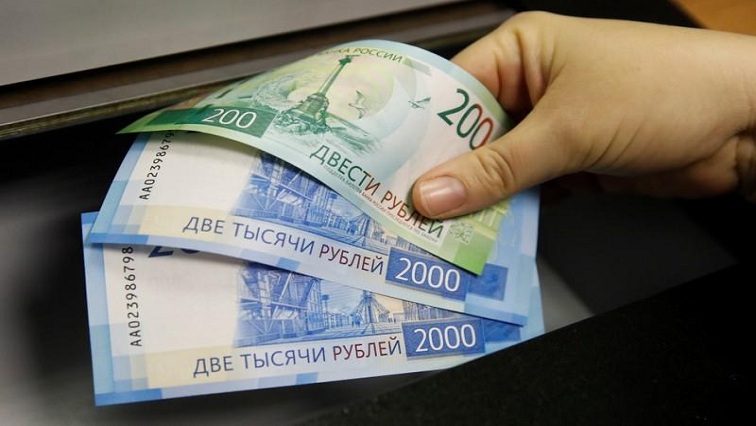The rouble touched a fresh record low of 110 to the dollar in Moscow on Wednesday and crawled back under 100 in other trading platforms, though it remained under pressure as the country’s financial system teetered under the weight of Western sanctions imposed over Moscow’s invasion of Ukraine.
The Russian stock market remained closed and trading on bonds showed wide bid-ask spreads and little volume.
The rouble fell 4.5% to 106.02 against the dollar in Moscow trade, earlier hitting 110.0, a record low.
It has lost about a third of its value against the dollar since the start of the year.
Against the euro, it shed 2.5%to finish the day at 115.40.
But trading outside of Russia saw the currency gain near 10% on the day toward 95 per dollar, still 20% weaker than where it traded at during the first half of February.
“The rouble volatility remains extremely high which could be caused by instability of forex sales by exporters along with still increased levels of stress of market players and households in particular,” Raiffeisen said in a note.
Russia has responded to the currency weakness by more than doubling interest rates to 20% and telling companies to convert 80% of their foreign currency revenues on the domestic market as the central bank, or CBR, which is now under Western sanctions,has stopped foreign exchange interventions.
The weak rouble will hit living standards in Russia and fan already high inflation, while Western sanctions are expected to create shortages of essential goods and services such as cars or flights.
Many international companies have announced plans to exit Russia, while the country’s credit ratings are coming under pressure as a result of the crisis.
Credit rating agency Moody’s said it was reviewing Russia’s rating for a downgrade, a move that “reflects the negative credit implications for Russia’s credit profile from the additional and more severe sanctions being imposed.”
Meanwhile, Scope Ratings said capital controls “raise significant questions surrounding the Russian state’s willingness to service its debt owed to foreign residents” after cutting its rating to junk status. The measures, Scope added, make Russia “more vulnerable to banking and liquidity crises.”
JP Morgan said there was a deep recession in the making for Russia and the bank was reassessing its regional macro forecasts. “The most recent measures targeting the CBR have completely changed the picture,” JP Morgan said.
“Russia’s large current account surplus could have accommodated large capital outflows, but with accompanying CBR and SWIFT sanctions, on top of the existing restrictions, it is likely that Russia’s export earnings will be disrupted, and capital outflows will likely be immediate.”
Several Russian banks have been barred from the SWIFT global financial network that facilitates transfers between banks.
As households and businesses in Russia have rushed to convert the falling rouble into foreign currency, banks raised rates for foreign currency deposits to attract those flows.
Russia’s largest lender Sberbank is offering to pay 4% on deposits of up to $1,000, while the largest private lender Alfa Bank is offering 8% on three-month dollar deposits.
For rouble deposits, Sberbank offers a 20% annual return. Sberbank said on Wednesday it was quitting almost all European markets, blaming big cash outflows and threats to its staff and property, after the ECB ordered the closure of its European arm.
The bank’s London-traded shares fell to 4.5 cents from $16 at the start of the year.
A US-traded ETF of Russian companies and others heavily exposed to Russia fell near 8% on Wednesday, for a 70%drop since mid-February.
Moscow calls its actions in Ukraine a “special operation”that it says is not designed to occupy territory but to destroy its southern neighbour’s military capabilities and capture what it regards as dangerous nationalists.


